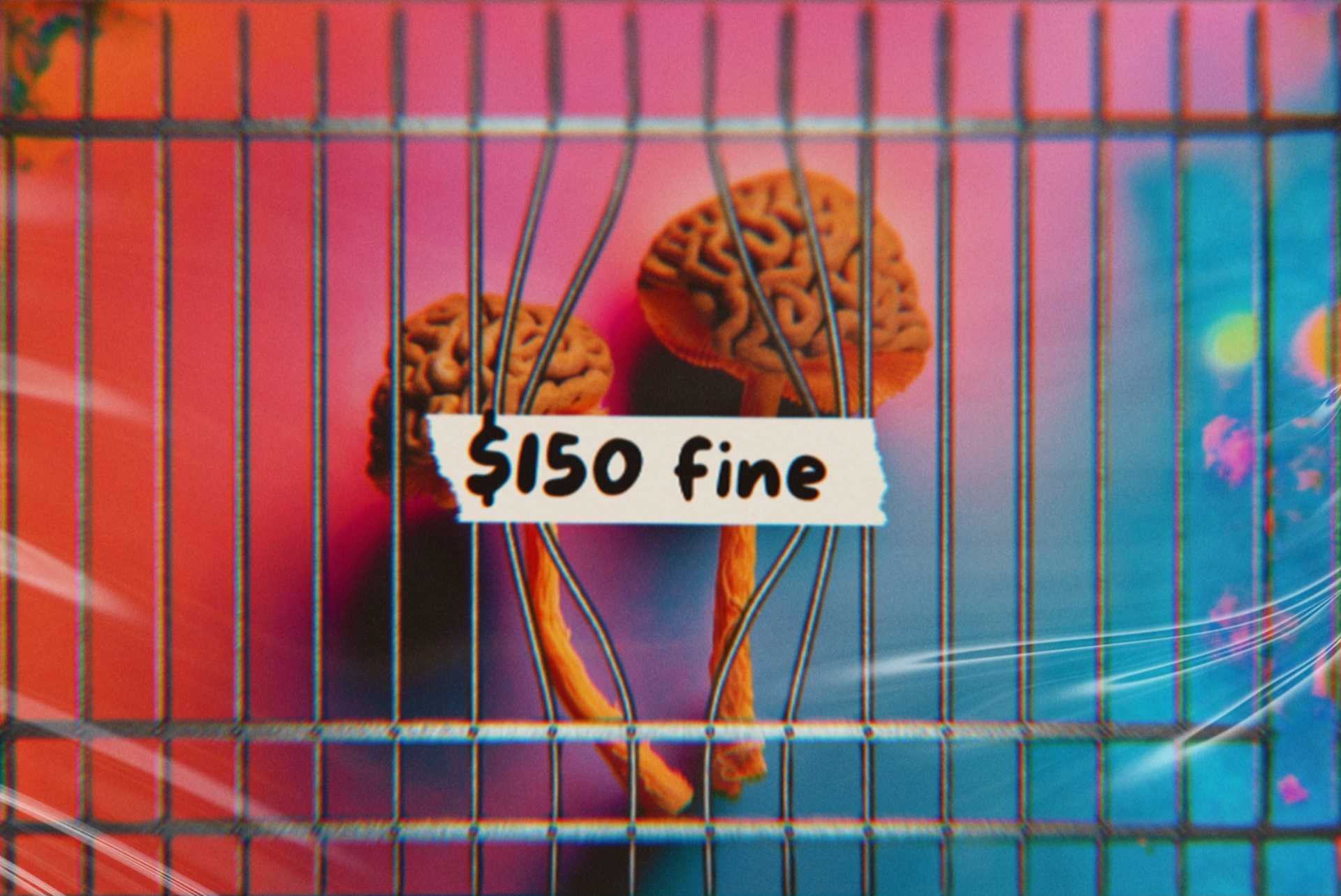
A coalition of psilocybin mushroom advocates has come together to oppose legislation in Connecticut, HB6734, which would eliminate criminal penalties for possessing 14 grams of dried psilocybin mushrooms but replace such penalties with a $150 fine.
The coalition, including CT CannaWarriors, Bay Staters for Natural Medicine, Parents for Plant Medicine, and New England Veterans for Plant Medicine, is opposing the legislation and all other bills like it going forward because fines can ironically increase policing.
“After pressuring law enforcement across New England for answers, a growing number of police departments have admitted to us they very rarely enforce laws for small amounts of mushrooms anyway. Fines would ironically encourage more policing because they create revenue streams for cities and states,” remarked Colomba Klenner, Communications Director for Bay Staters.
Advocates point to empirical evidence from parking tickets to prove their point about “policing for profit.” Advocates believe fines for possession of small amounts, only fourteen grams in the case of Connecticut, can backfire at a time when many police are informally turning away from making arrests for small amounts of controlled substances.
“This movement is about peer to peer education on plant medicine. Organizers across the country should work to pass city council measures to strengthen their hand locally prior to filing a state bill. We should not compromise on growing rights and fines because it can take decades to reverse bad policy,” remarked James Davis, a co-founder of Bay Staters for Natural Medicine.
The Connecticut bill lacks any protections for growing, a critical way that people find and access psilocybin for themselves across the United States. Advocates worry that simplistic headlines of “decriminalization” stemming from the state bill will motivate many people to grow their own without necessary protections. As the letter points out, “People caught “manufacturing” a controlled substance like psilocybin can face up to fifteen years in jail and may be fined up to $50,000 in Connecticut.” This would mean that by only taking a very small step, this law still leaves people vulnerable to prosecution or eviction for realistically accessing psilocybin.
“No Grow, No Go,” said Christina Capitan, a co-founder of the CT CannaWarriors and longtime advocate for growers rights. “If we can’t grow our own medicine, that’s opening the door to corporations taking over the space just like they’ve tried in cannabis.”
“We can do better,” remarked Mollie McGurk, a Connecticut-based advocate and writer. “We have to stand up for concrete, material change, not clickbait headlines that fail to address the potentially harmful implications of this bill.”
No Grow, No Go: Why Plant Medicine Advocates Demand Decriminalization Without Fines and With Growing Protections
As advocates for plant medicine, we stand united in our opposition to HB6734 this legislative session, and we call on Connecticut’s state lawmakers to protect our rights to grow and share psilocybin mushrooms non-commercially in a fashion similar to Massachusetts’ An Act Relative to Plant Medicine next session. HB6734 would make possession of up to half an ounce—only 14 grams of dried psilocybin mushrooms—punishable by a $150 fine (with subsequent fines of between $200 and $500). While this may seem like a marginal improvement over the risk of a larger fine and jail time of up to a year, this law will ironically and substantially harm progress long-term in two vital ways.
- HB6734’s Fines Incentivize More Policing — and fines almost always disproportionately harm people who lack the financial means to pay them. A lot of police departments throughout New England and Connecticut already unofficially deprioritize arrests for minor amounts of psilocybin mushrooms. Many officers elect not to enforce laws they feel carry an excessive punishment and cost to the state to enforce. However, a fine of $150 may sound more reasonable to impose for many members of law enforcement. And moreover, any revenue stream that is created for a city or the state will create a strong financial incentive for police chiefs to instruct their officer to police a particular issue, like psilocybin, more. Look no further than parking fines being a huge money-maker for cities as an example of this phenomena of fine-driven policing.
- HB6734 Fails to Protect Growers — People often do not look past headlines, and case-in-point is how much this Connecticut’s HB6734 has been promoted as “decriminalization” without mentioning its fines. While the bill has generated commendable public discussion of psilocybin, it does nothing to protect people supplying psilocybin to their friends and family. Headlines of “decriminalization” will occur without protecting people who will choose to access these plant medicines by growing their own, the most common method of access. People caught “manufacturing” a controlled substance like psilocybin can face up to fifteen years in jail and may be fined up to $50,000. This means, inevitably, that by only taking a very small step in the right direction, this law could end up destroying the lives of people who chose to grow their own and share if they encounter an undercover narcotics officer whose department has a new financial incentive to look into this activity.
- Placates Activists in the Space while Maintaining Stigma— passing this legislation will serve as an excuse not to take further action for years or even decades into the future. The people of Connecticut deserve robust public debate on the best possible policy, rather than an inadequate bill that conservative lawmakers have reasonably noted sends a mixed message on these plant medicines. We will work to secure local endorsements city by city to build toward a better state bill next year.
Signed by the Following Organizations and Individuals:

You may also like: Salem, Massachusetts Ends Arrests for Psilocybin Mushrooms





